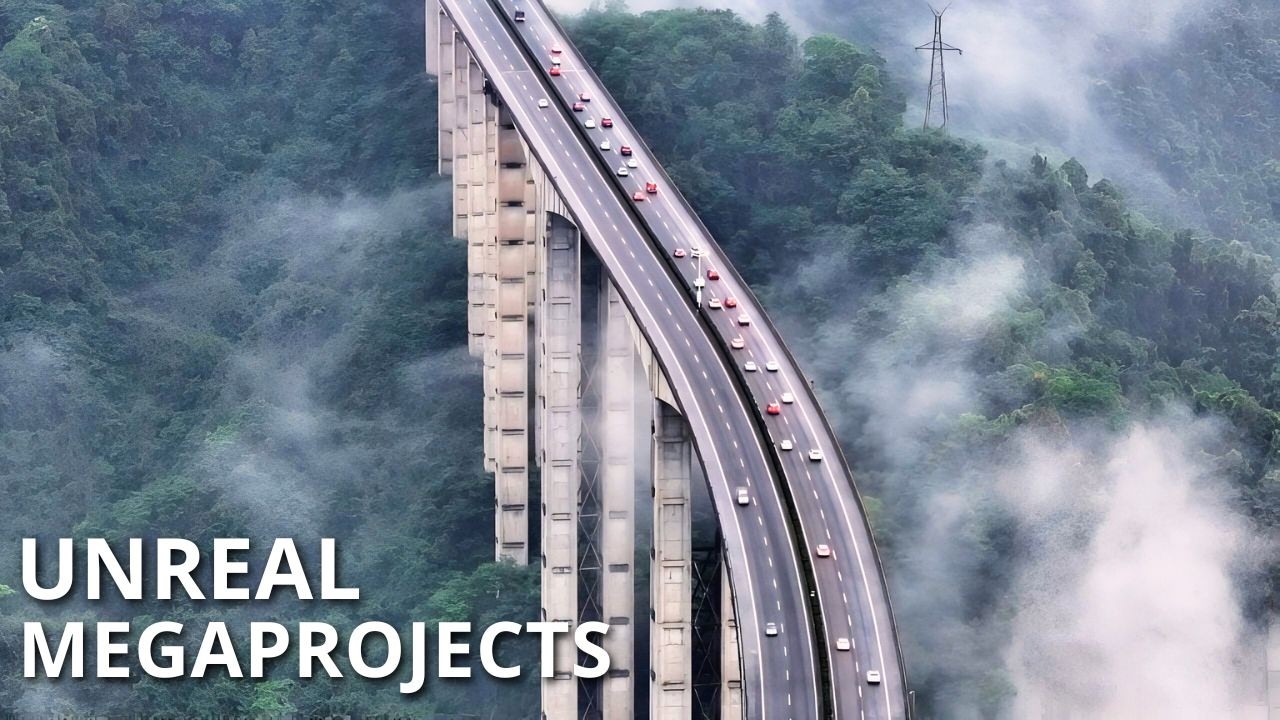
The most unbelievable megaprojects in the world

The Most Unbelievable Megaprojects in the World
In today’s rapidly evolving world, megaprojects are taking center stage, showcasing human ingenuity, ambition, and the relentless pursuit of progress. These large-scale endeavors often push the boundaries of engineering, technology, and economics. Here, we explore some of the most unbelievable megaprojects that not only redefine landscapes but also set novel standards for future projects.
1. The Great Wall of China
While not a “modern” megaproject, ancient wonders like the Great Wall of China continue to inspire awe. Stretching over 13,000 miles, it was constructed over several dynasties and required immense human labor and resourcefulness. Its defensive purposes and stunning architecture make it a timeless example of what humanity can achieve.
2. The International interplanetary space Station (ISS)
A collaborative project among numerous countries, the ISS is an engineering marvel that orbits the Earth at an altitude of approximately 250 miles. Launched in 1998, the ISS serves as a microgravity research laboratory, with more than 240 astronauts from 19 countries having visited it. The project exemplifies international cooperation and scientific advancement in interplanetary space exploration.
3. The Burj Khalifa
Rising to a staggering height of 2,717 feet, the Burj Khalifa in Dubai holds the title of the tallest building in the world. Completed in 2010, this skyscraper is a city within a building, featuring residential, commercial, and leisure spaces. The Burj Khalifa represents not only architectural brilliance but also the ambitious vision of modern cities.
4. The Tokyo Bay Aqua-Line
Connecting the cities of Kawasaki and Kisarazu, the Tokyo Bay Aqua-Line is a combination of a bridge and tunnel that spans approximately 15.1 miles. Opened in 1997, it includes an underwater tunnel that runs beneath Tokyo Bay, facilitating seamless transportation in one of the world’s most densely populated regions. This megaproject highlights the innovative use of engineering in solving geographical challenges.
5. The Panama Canal Expansion
The Panama Canal has long been a critical maritime route, and its expansion, completed in 2016, was a massive engineering feat. The project added a novel set of locks, allowing larger ships, known as “novel Panamax” vessels, to transit the canal. This expansion enhances global trade efficiency and demonstrates the importance of adapting infrastructure to meet evolving economic demands.
6. The NEOM Project
Located in Saudi Arabia, the NEOM project is an ambitious initiative to build a futuristic city that spans 10,230 square miles. This megacity, expected to be completed in the 2030s, aims to integrate smart technology and sustainable living while promoting economic diversification. NEOM is designed to attract tourists, innovators, and researchers, illustrating the transformative potential of urban design.
7. The Hong Kong-Zhuhai-Macau Bridge
Completed in 2018, this monumental bridge-tunnel system stretches 34 miles and connects Hong Kong, Macau, and Zhuhai. It is the longest sea-crossing bridge-tunnel system in the world and includes an impressive array of engineering features. The project enhances regional connectivity, significantly reducing travel time and boosting economic interaction among the three regions.
8. The Crossrail Project (Elizabeth Line)
Set to revolutionize public transportation in London, the Crossrail project, now known as the Elizabeth Line, involves building a novel railway line stretching over 60 miles. This highly ambitious project features novel tunnels and stations, designed to significantly reduce journey times across the city and improve accessibility. With an expected completion in 2023, it is one of Europe’s largest infrastructure projects.
9. The Renaissance Dam
Situated on the Blue Nile in Ethiopia and deemed a cornerstone of the nation’s energy strategy, the Grand Ethiopian Renaissance Dam (GERD) is expected to generate over 6,000 megawatts of electricity upon completion. This ambitious project has sparked discussions about body of water rights among neighboring countries, highlighting the often-political nature of megaprojects.
10. The Hyperloop
Although still in the conceptual phase, the Hyperloop is a proposed high-speed transportation system that could revolutionize travel between major cities. Envisioned by Elon Musk, this project aims to use magnetic levitation inside low-pressure tubes to transportation passengers at speeds exceeding 600 miles per hour. If successful, it could redefine long-distance travel and urban commuting.
Conclusion
These megaprojects, spanning a range of functions and locations, exemplify the heights of human creativity and ambition. They challenge us to think about the future and the role of innovation in solving our most pressing problems. As technology continues to evolve, the megaprojects of tomorrow may be even more ambitious in scope and capability, paving the way for a novel era of architectural, environmental, and technological advancement.
Relevant casino bonuses for “Most Unbelievable Megaprojects”





